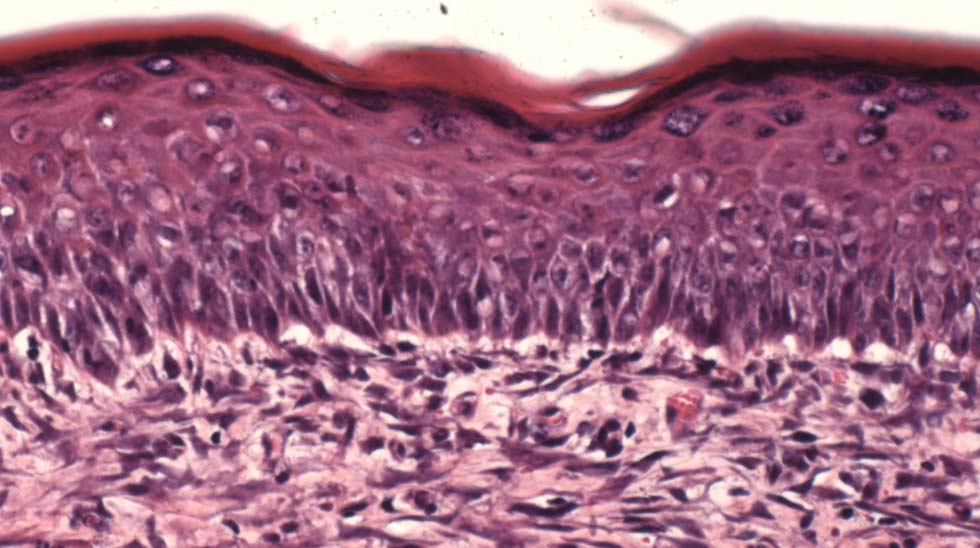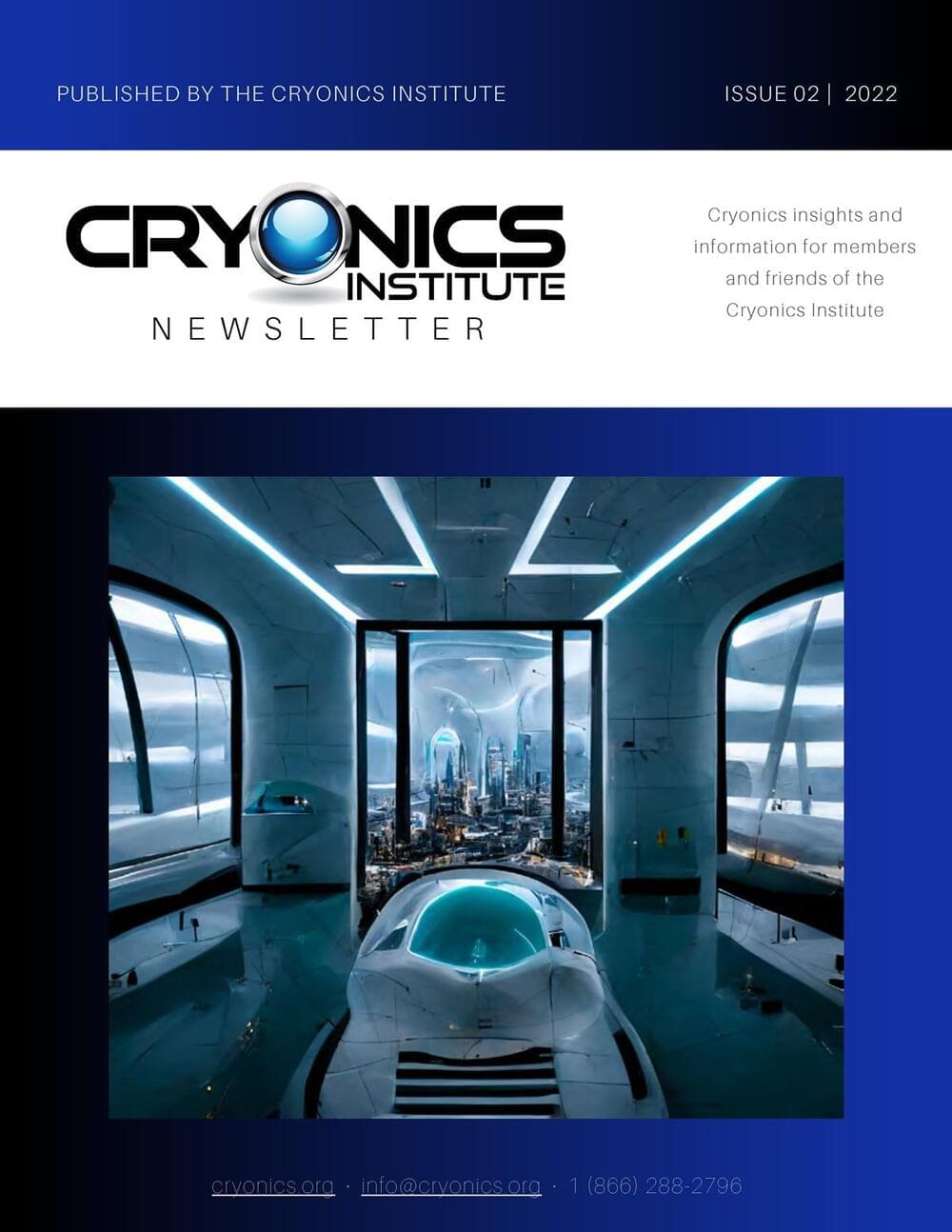The T. dohrnii can turn itself from a full-grown jellyfish all the way back to its juvenile stage as a polyp on the seafloor.



Dr. Max More is a philosopher, writer, speaker and expert in Cryonics — the process of cryopreserving a body at the time of legal death in the hopes of reviving them in the future.
Theo talks with Dr. More about what actually happens when we die, the future of mankind, and if Theo would preserve his brain for science.
Dr. More is the Ambassador for Alcor Life Extension, a non-profit in Scottsdale, Arizona practicing cryonics. Max received a Doctorate in Philosophy in 1995 from the University of Southern California after completing a degree in Philosophy, Politics, and Economics from Oxford University.
Dr. Max More: https://www.maxmore.com/
Learn more about Alcor: https://www.alcor.org/
Tour Dates! https://theovon.com/tour.
New Merch: https://www.theovonstore.com.
Podcastville mugs and prints available now at https://theovon.pixels.com.
Support our Sponsors:
Hey it’s Han from WrySci-HX talking about how the anti diabetic drug Empagliflozin, brand name Jardiance, has reversed signs of vascular aging in mice! Is this why we’re seeing its benefits in humans? More below ↓↓↓
Subscribe!
Please consider supporting 🙏
Patreon: https://www.patreon.com/wrysci_hx.
Or better yet, consider supporting any of the following!
They boost each other and block side effects? (In mice)
Rapamycin and metformin are viewed by many as the two most promising anti-aging drugs, but now scientists have found that these drugs can work hand in hand and show combined benefits, boosting each other’s effectiveness and blocking side effects — or at least that’s what we’ve seen in mice.
When tested by the Intervention Testing Program metformin failed to significantly increase lifespan in mice. However, in combination with rapamycin, it worked synergistically, leading to a drastic increase in median and maximal lifespan.
In this new study, the researchers put the “combination hypothesis” to the test again, using male mice of a common pre-diabetes model. The mice received either rapamycin, metformin, or a combination from 12 to 30 weeks of age.
Being pre-diabetic, these mice usually gain a lot of weight with age. Metformin treatment did not alleviate this trend, but both the rapamycin and combination treatments allowed the mice to maintain normal weight until the end of the experiment.
Join us on Patreon!
https://www.patreon.com/MichaelLustgartenPhD
TruDiagnostic Discount Link (Epigenetic Testing)
CONQUERAGING!
https://bit.ly/3Rken0n.
Bristle Discount Link (Oral microbiome quantification):
ConquerAging15
https://www.bmq30trk.com/4FL3LK/GTSC3/
Cronometer Discount Link (Daily diet tracking):
https://shareasale.com/r.cfm?b=1390137&u=3266601&m=61121&urllink=&afftrack=
Support the channel with Buy Me A Coffee!
https://www.buymeacoffee.com/mlhnrca.
Papers referenced in the video:

Including Charlie Kam, Dr. Aubrey deGrey, Valery Chuprin, Jose Cordeiro, Gennady Stolyarov, Joseph Kowalsky & Richard Daley.
Please share this event with someone that you care about.
Would you like to make a Donation to Perpetual Life? Your donations help us grow & improve our services. To donate, go to our website http://Perpetual.Life and use the PayPal button at the top right of the page. Thank you for your generous donations, we appreciate it immensely!
“Our task is to make nature, the blind force of nature, into an instrument of universal resuscitation and to become a union of immortal beings.“
- Nikolai F. Fedorov.
We hold faith in the technologies & discoveries of humanity to END AGING and Defeat involuntary Death within our lifetime.
Working to Save Lives with Age Reversal Education.
Foresight Existential Hope Group.
Program & apply to join: https://foresight.org/existential-hope/
In the Existential Hope-podcast (https://www.existentialhope.com), we invite scientists to speak about long-termism. Each month, we drop a podcast episode where we interview a visionary scientist to discuss the science and technology that can accelerate humanity towards desirable outcomes.
Xhope Special with Foresight Fellow Morgan Levine.
Morgan Levine is a ladder-rank Assistant Professor in the Department of Pathology at the Yale School of Medicine and a member of both the Yale Combined Program in Computational Biology and Bioinformatics, and the Yale Center for Research on Aging. Her work relies on an interdisciplinary approach, integrating theories and methods from statistical genetics, computational biology, and mathematical demography to develop biomarkers of aging for humans and animal models using high-dimensional omics data. As PI or co-Investigator on multiple NIH-, Foundation-, and University-funded projects, she has extensive experience using systems-level and machine learning approaches to track epigenetic, transcriptomic, and proteomic changes with aging and incorporate.
this information to develop measures of risk stratification for major chronic diseases, such as cancer and Alzheimer’s disease. Her work also involves development of systems-level outcome measures of aging, aimed at facilitating evaluation for geroprotective interventions.
Existential Hope.
A group of aligned minds who cooperate to build beautiful futures from a high-stakes time in human civilization by catalyzing knowledge around potential paths to get there and how to plug in.
Follow us!

2022 https://www.cryonics.org/images/uploads/magazines/CI_NEWS-2022-02.pdfdiv.
THE CRYONICS INSTITUTE NEWSLETTER ISSUE 2, 2022 https://www.cryonics.org/images/uploads/magazines/CI_NEWS-2022-02.pdf